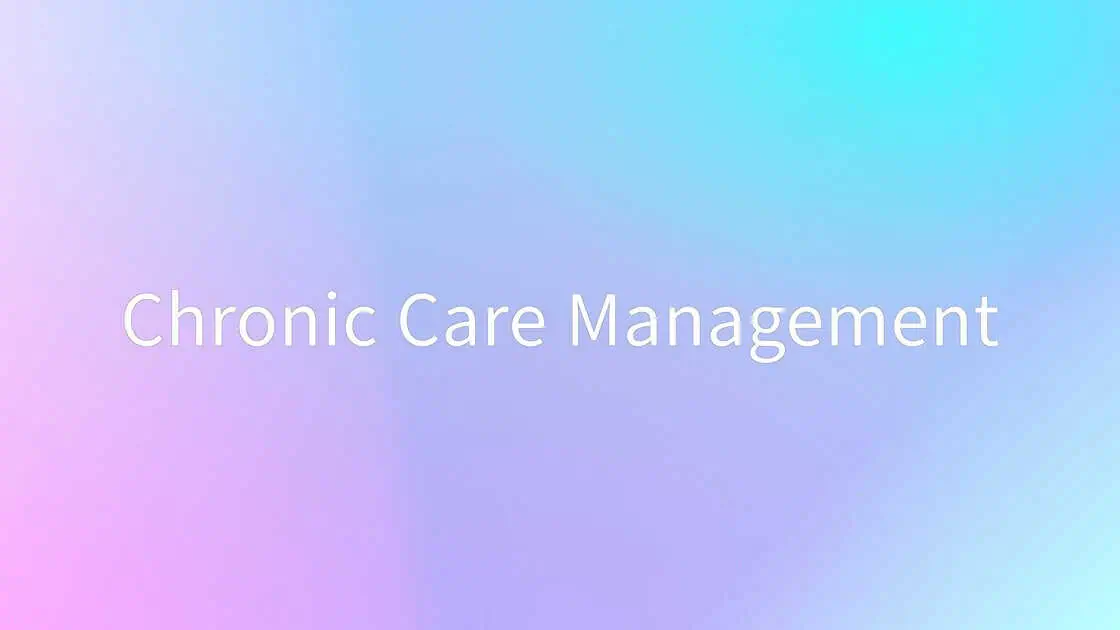Table of Contents
Chronic conditions, such as diabetes, heart disease, and cancer, require ongoing care and management to maintain optimal health and quality of life. Chronic care management is a crucial aspect of healthcare that provides patients with the necessary resources, support, and education to manage their conditions effectively. It involves a team of healthcare providers who work collaboratively to develop a personalized care plan for each patient, addressing their unique needs and challenges. In this blog post, we will explore the duties of chronic care management, the importance of this service, and the challenges that patients and healthcare providers face in implementing it. Whether you are a patient or a healthcare provider, understanding the role of chronic care management in managing chronic conditions is essential for improving health outcomes and enhancing the overall healthcare experience.
What is Chronic Care Management?
Chronic care management is a proactive approach to healthcare that focuses on the ongoing care and management of chronic conditions. It involves coordinating care among healthcare providers, such as primary care physicians, specialists, and other healthcare professionals. Chronic care management aims to improve the quality of life for patients with chronic conditions, reduce hospitalizations and emergency department visits, and lower healthcare costs. Chronic conditions are long-term illnesses or health conditions that require ongoing medical attention and support. These conditions may include diabetes, heart disease, hypertension, chronic obstructive pulmonary disease (COPD), asthma, cancer, etc. Chronic conditions can impact a person’s physical, emotional, and social well-being and significantly affect their quality of life.
Chronic care management services are designed to provide patients with the necessary resources and support to manage their conditions effectively. This may include medication management, regular check-ups, lifestyle coaching, patient education, and self-management support. The care team responsible for chronic care management may also help patients navigate the healthcare system, coordinate appointments, and communicate with other healthcare providers involved in their care.
Duties of Chronic Care Management
Chronic care management involves a range of duties and responsibilities for healthcare providers and patients. The care team responsible for chronic care management may include primary care physicians, specialists, nurses, pharmacists, and other healthcare professionals. Here are some of the key duties of chronic care management:
- Assessment and Care Planning: The care team will initially assess the patient’s health status and develop a personalized care plan based on the patient’s needs, goals, and preferences. The care plan may include medication management, lifestyle changes, regular check-ups, and other interventions.
- Patient Education: Patient education is a critical component of chronic care management. The care team will provide patients with the necessary information and resources to understand their condition, manage their symptoms, and prevent complications.
- Monitoring and Follow-up: The care team will regularly monitor the patient’s health status and adjust the care plan as needed. This may involve regular check-ins, medication adjustments, and other interventions to manage symptoms and prevent complications.
- Coordination of Care: The care team will coordinate care among healthcare providers involved in the patient’s care, such as primary care physicians, specialists, and other healthcare professionals. This may involve sharing information, communicating with other providers, and ensuring that the patient receives the appropriate care.
- Support for Self-Management: The care team will provide patients with the necessary support and resources to manage their condition independently. This may include coaching on healthy lifestyle changes, stress management, and other strategies to help patients take an active role in their care.
Patients and their families or caregivers also have essential responsibilities in chronic care management. These may include attending appointments, following the care plan, taking medications as prescribed, monitoring symptoms, and communicating with the care team about any changes in their health status.
The Importance of Chronic Care Management
Chronic care management is essential for improving health outcomes and enhancing the overall healthcare experience for patients with chronic conditions. Here are some of the key benefits of chronic care management:
- Improved Health Outcomes: Chronic care management can help patients manage their condition effectively, reducing the risk of complications and improving their overall health outcomes. Patients who receive chronic care management services are less likely to be hospitalized or visit the emergency department and may experience better control of their symptoms.
- Increased Patient Satisfaction: Patients who receive chronic care management services report higher satisfaction with their healthcare experience. Chronic care management focuses on the whole patient, considering their unique needs, goals, and preferences. By providing patients with personalized care that meets their specific needs, chronic care management can enhance the patient experience.
- Reduced Healthcare Costs: Chronic care management can help reduce healthcare costs by preventing complications and reducing hospitalizations and emergency department visits. By providing patients with the necessary resources and support to manage their condition effectively, chronic care management can help reduce the overall cost of care.
- Improved Coordination of Care: Chronic care management promotes better care coordination among healthcare providers involved in patient care. Chronic care management can improve the quality and continuity of care by ensuring that all providers have access to the same information and are working together to support the patient’s health.
Conclusion
Chronic care management is a proactive approach to healthcare that is essential for managing chronic conditions effectively. It involves a range of duties and responsibilities for healthcare providers and patients, including assessment and care planning, patient education, monitoring and follow-up, coordination of care, and self-management support.
Chronic care management is critical for improving health outcomes, enhancing the patient experience, and reducing healthcare costs. Chronic care management can help patients live healthier, more fulfilling lives by providing the necessary resources and support to manage their condition effectively.
If you or a loved one has a chronic condition, working with a healthcare provider offering chronic care management services is important. By partnering with a care team specializing in chronic care management, you can receive the personalized care and support you need to manage your condition effectively and achieve better health outcomes.
At Health and Wellness Medical Services, we offer comprehensive chronic care management services to help patients manage their chronic conditions effectively. Contact us today to learn more about our services and how we can support your health and well-being.








